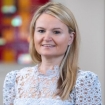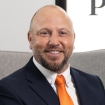
“I’m delighted to introduce our 2025 transparency report. The annual publication is designed to help our key stakeholders and wider society within the Channel Islands understand our objectives, what we expect from our people, and how we’re governed. While PwC is a multidisciplinary firm, this report is primarily focused on our audit practice and related services.”
Catalyst for change
Our purpose is simple yet powerful: To build trust in society and solve important problems.
And this isn’t just words, our purpose guides how we think, work, and collaborate. We want to be a catalyst for change. We want to help our clients and the communities we serve turn their ideas and aspirations into reality.
High quality auditing is a crucial part of this purpose and the benefits it delivers by giving investors the confidence they need to invest during times of uncertainty and change.
Our future is at stake
Right now, the need for transformation and the levels of investment that are required to deliver it couldn’t be higher.
For our clients, the stakes have been raised by the pressure to sustain competitive relevance and accelerate reinvention in local and global economies being reshaped by AI, climate change, and geopolitical upheaval. Commercial survival and success require both bold strategic thinking and significant investment. But with the challenges come huge opportunities.
Globally, we estimate that $7.1 trillion in revenues is up for grabs in 2025 alone, as innovation and industry reconfiguration opens new domains of growth.
Investment is equally critical in tackling the immense challenges facing our island communities and the people on our planet as a whole. A clear case in point is the transition to a low carbon economy. Coming up on the horizon is the post-war reconstruction of Ukraine. The scale of the task and funding required are comparable to the marshall plan that helped to rebuild and revitalise Western Europe after World War Two. As with business model reinvention, these societal and environmental imperatives offer as many opportunities and challenges.
Quality audit is the cornerstone of trust
Investment makes change happen. Without funding, ideas are just dreams.
As safe harbours of stability and investment expertise in a volatile world, our islands are ideally placed to channel finance to where it is needed most. We can already see the impact of investment by Channel Islands based funds in areas such as green technology and renewable energy.
High quality audit is the cornerstone of funding by assuring investors that their funds are going to the right place, are being managed in the right way and are having the right impact.
Bar for audit is rising
What’s also clear is that the bar for audit quality is rising in a world that’s becoming less predictable and less reliable than it once was.
Old certainties are being swept away by a combination of technology disruption and sharp shifts in regulation, supply chains and global trade. In this uncertain environment, investors and stakeholders are calling for greater clarity, transparency and trust in how organisations report on their performance, risk and purpose.
Feel free to get in touch
So, this is a time of exceptional challenge and change for our island communities and the world as a whole. But by building trust and working together, we can not only steer through the disruption ahead, but also seize the opportunities.
If there are any issues that you would like to discuss, please feel free to get in touch.
Transparency Report
2025
Contact us











